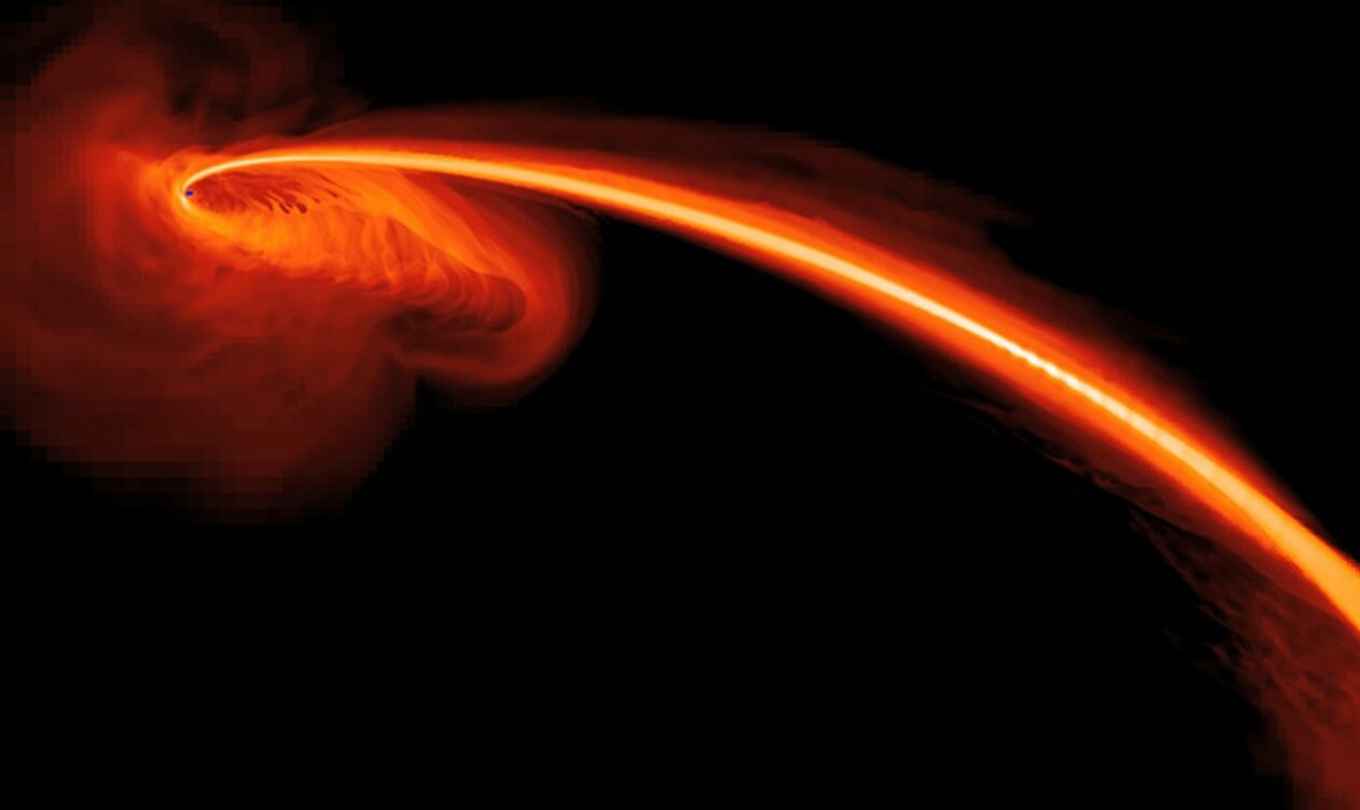The Dutch Black Hole Consortium receives €4.9 million in funding from the National Science Agenda
25 November 2020

Astronomers and physicists are joining forces to make new discoveries about black holes, using the Event Horizon Telescope, the international project that took the first direct image of a black hole last year, and via gravitational waves, where geologists are also ‘delving into the ground’ for the potential underground construction of the planned gravitational wave detector Einstein Telescope. The consortium will work with universities of applied sciences to develop new educational materials aimed at sparking interest in science among people of all backgrounds and especially children. Lead applicant Stefan Vandoren from Utrecht University: ‘This is an excellent project in which we are combining research, technology and the interests of society.’
Interdisciplinary
The Dutch Black Hole Consortium is made up of researchers from the fields of theoretical physics, astronomy and geology, technicians working on the next generation of gravitational wave detectors and researchers of science communication and science history, combined with teacher training courses and museums. The UvA researchers who are part of the consortium are Sera Markoff, Jan de Boer, Franke Linde, Ralph Wijers, Alejandra Castro, Jeroen van Dongen, Erik Verlinde, Alessandro Bertollini, Sarah Caudill and Samaya Nissanke from the Anton Pannekoek Institute (API), Institute of Physics (IOP) and the API/IOP joint initiative GRAPPA (Gravitation AstroParticle Physics Amsterdam).
Sera Markoff, who sits on the Consortium Board: ‘We are excited to launch this interdisciplinary project in order to enhance our understanding of the nature of black holes, while also conveying our enthusiasm about our discoveries to the public through museums and outreach projects.’
State-of-the-art facilities
By contributing to the development of the Einstein Telescope, the consortium is laying the foundations for future research into gravitational waves. The telescope infrastructure could possibly be built underground in the border area of Zuid-Limburg. In order to investigate the potential for this, the Geological Survey of the Netherlands, part of the Netherlands Organisation for Applied Scientific Research (TNO), will work in partnership with the Province of Limburg and businesses to chart the subsurface in the area. The consortium will also test current theories about black holes and the nature of gravity using data from gravitational-wave detectors Virgo and LIGO and the Event Horizon Telescope, where it will also work to develop new analysis tools for the expanded array capabilities.
Educational programme
The consortium will share the project’s findings with the rest of society through exhibitions at Rijksmuseum Boerhaave and the Continium discovery centre. Educational experts in the consortium will also develop an educational programme based on the latest findings. They will develop and research new teaching materials, including an interactive digital tool designed to promote scientific thinking, train primary and secondary school teachers and work closely with various educational partners, including natuurkunde.nl. In addition, the consortium will set up a citizen science project that will use data from the BlackGEM telescopes. These telescopes will search for flashes of light related to gravitational-wave events.
The consortium is made up of 31 applicants from universities and universities of applied sciences and six partners from industry, museums and government.